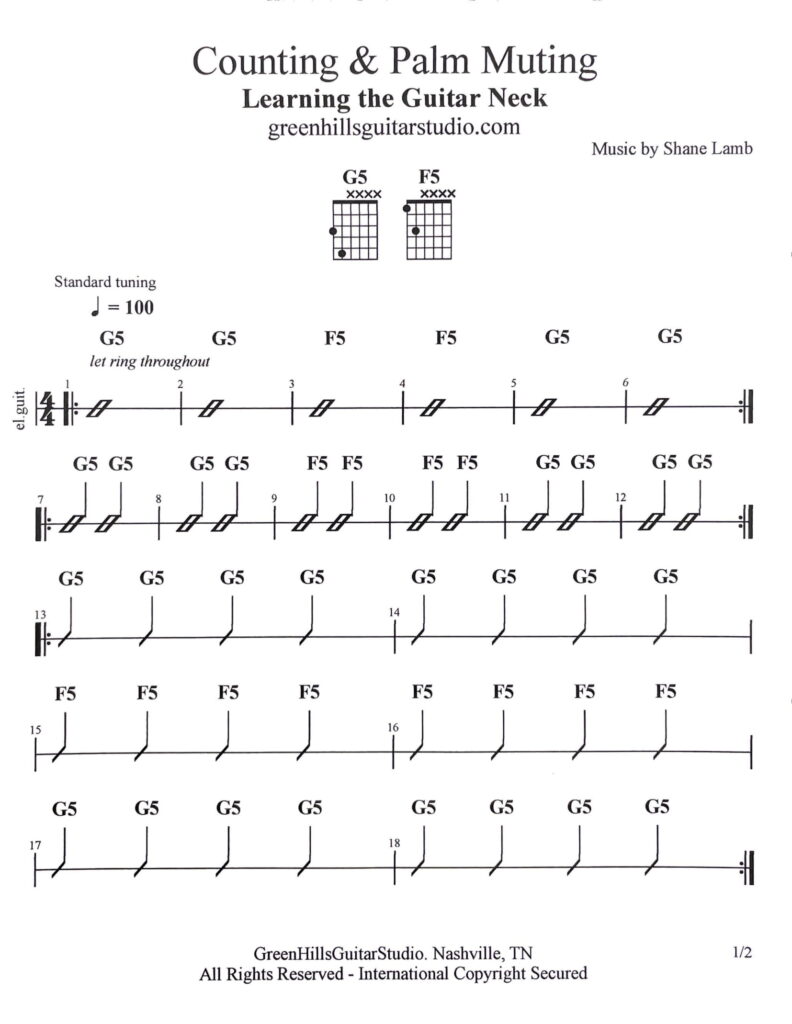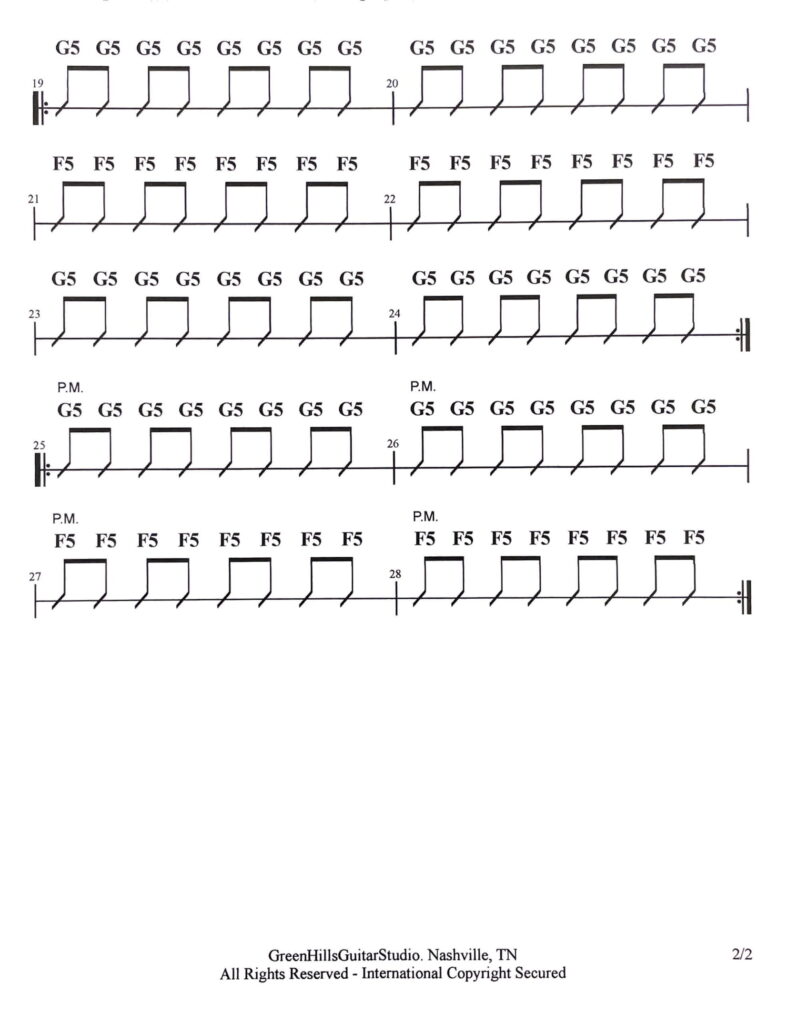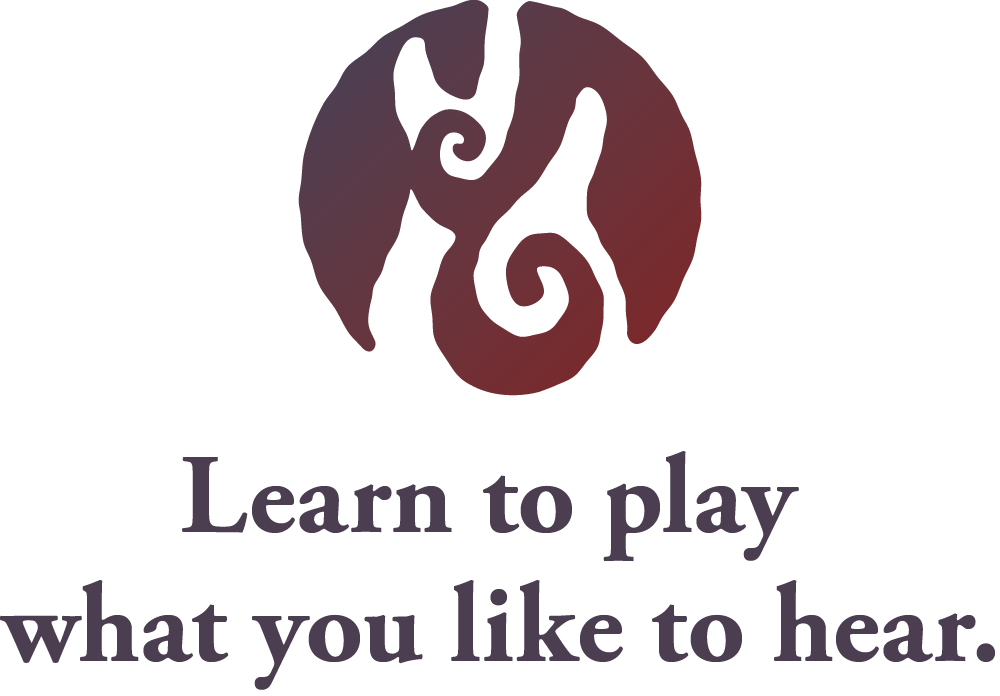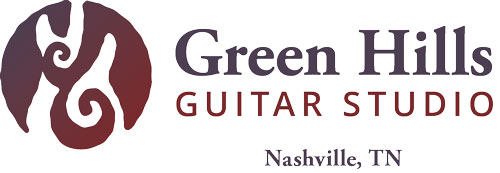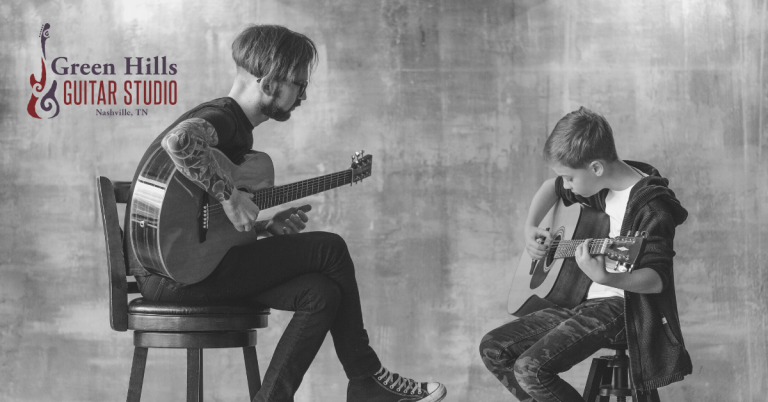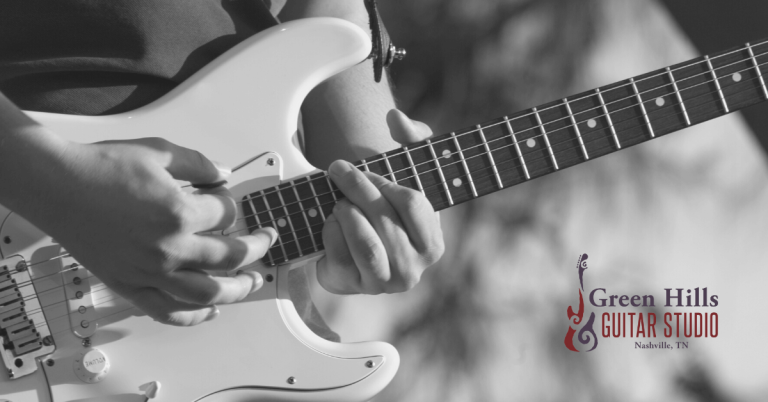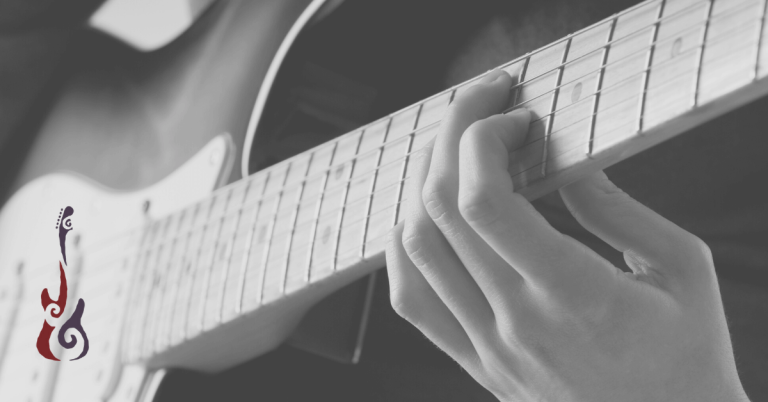Why You Need to Learn Power Chords
When it comes to playing guitar, one of the fundamentals you need to learn is power chords. Power chords are the backbone of modern music and essential to any guitarist’s repertoire. Not only are they used in popular music, but they are also used in many different genres, ranging from rock and metal to punk and even pop.
Power chords are an essential part of playing the guitar. They are easy to learn and can add great power and variation to your playing. Learning power chords can help you to create more interesting and powerful guitar parts. This article will explore why you need to learn power chords and how this versatile voicing can help you become a better guitarist.
Learning the Fretboard Can Be Frustrating
How many times have you tried to learn and memorize the guitar fretboard and then realize it didn’t work…again? If it makes you feel any better, this is a common problem. When I first started learning guitar, I tried everything: diagrams, “tricks,” and rote memorization of the fretboard.
I was really disciplined about it for a bit, but I forgot it because I didn’t know how to apply the information or use it functionally. The frustration of trying to learn the fretboard can lead to a sense of self-defeat and questioning one’s abilities. As a guitar instructor in Nashville, I see this a lot with beginning and intermediate students.
Songwriters often move a capo around the fretboard to find a key that suits their voice, but they usually play the same open-position chords without knowing what key they’re actually in. This approach can help you get by, but it’s ultimately limiting. A lack of fretboard understanding can eventually result in a lack of inspiration, creative output, and confidence.
Musical Limitations Can Limit Your Creative Potential as a Songwriter
Songwriters that learn bits and pieces about playing the guitar from their peers, or bounce around the internet from tutorial to tutorial, will eventually get stuck. This can lead to feeling disconnected from the guitar. Common symptoms include:
- Not knowing how to communicate your musical ideas and vision effectively
- Inconsistent technique that perpetuates left-hand placement and right-hand consistency
- Creative limitations that result from the inability to count, subdivide, and understand rhythm
- Co-writing, recording sessions, and live performance become stressful due to limited knowledge, resulting in shame, embarrassment, and “imposter syndrome”
I’ve known songwriters that lost track of their artistic vision, sound, and songs because they couldn’t communicate their musical ideas effectively. Putting in the work to become a better musician will help keep you in the driver’s seat, so no one else has to make musical decisions for you.
You have to take your craft and skills seriously to be taken seriously.
Nashville is a music center with amazing talent. Developing the skills you need to grow, perform, and contribute at a high level is paramount. You need to be proactive about learning and understanding your instrument more deeply. The payoffs will be significant! You’ll feel better, be more inspired, and develop a growth habit.
Getting Out of a Creative Rut
Creative inspiration wanes when you feel like you keep doing the same thing, with the same four chords moved around the neck with different capo positions. Studying piano or guitar can be a great way to unlock your creative potential and musical understanding. This will empower you to analyze and transcribe songs, make chord charts, and go deeper into what makes music “work.”
Be your own rescue, and strive to be a better writer, bandleader, and performer!
Often, songwriters hire guitar players and other session players to write their Nashville Number charts and play rhythm guitar for them. I suggest songwriters learn the fretboard, some basic music theory, and the ability to function as a rhythm guitarist.
You don’t have to be a guitar hero. The world doesn’t need another guitar Jedi. The world needs you to be a more effective artist. Guitar and musical fundamentals go a long way toward saving time, money, and energy.
How do you want to function and contribute to your music and the music of others?
Many aspiring songwriters find themselves stuck when they lack an understanding of keys, chord progressions, and harmonic options. Instead of pushing forward and turning their inspiration into something tangible, they wait for a magical solution.
While inspiration is a wonderful gift, crafting it into something meaningful is the real challenge. This requires exploration and development, so be sure to take the time to grow your skills and write your ideas forward.
When Working with Beginning Guitarists, I Often See:
- Not having a consistent and linear approach to learning guitar that helps them reach their goals while also learning important fundamentals along the way. Both can happen at the same time!
- Gaps in knowledge and technique, so they continue to do the same thing they’ve been doing…and not making consistent progress.
- Being overwhelmed by the guitar neck and being unable to find and execute chords, guitar licks, and solos in different keys and positions
- This is when the inner critic, comparing oneself to others, anxiety, and stress wander into your brain and show up in your guitar playing. Don’t let them settle in! Anyone can learn how to play guitar. Like a consistent golf swing, good jiu-jitsu rolls, or swinging nun chucks by your face, repeatability and knowledge are important!
When Working with Intermediate Guitarists, I Often See:
- These folks are tougher to teach because they are so frustrated and stuck. They know enough to be dangerous and can play scales and songs. They can jam around and move up the neck, but they can’t name the notes of the chords or scales they are playing.
- Inconsistent tricks and gimmicks of shapes and patterns to move around the guitar neck. This causes confusion, slows growth, and reinforces wrong habits.
- The inability to “see” the guitar neck horizontally and vertically, in different keys, chord shapes
- They continue to play the same things repeatedly, entrenching their stuck-ness.
- They want to break out of a rut but don’t know where to start. It all seems so simple, but it’s maddening. They progress quickly by deliberately and methodically learning the guitar fretboard and how to count and play solid rhythm guitar. But like moths to a flame, they go back to their old habits again and again for some weird fix of magical thinking.
- Not making connections to chord progressions, shapes, scales, and keys. Oftentimes, we guitarists impose a pattern or shape on something and hope it all works out. When we find ourselves here, we need to listen better, think less, and play more musically and intentionally.
- Not consistently able to target notes of the underlying chord progression and play musically satisfying and appropriate phrases.
- Understanding the guitar neck, improvising, and learning solos and rhythm parts by your favorite guitarists becomes more fun and instructive than just playing parts. This will open new avenues in your own playing and musical growth. Understanding how and why your favorite guitarists play as they do will give you insights into the appropriate stylistic and musical outcomes you seek.
Power Chords Can Be an Entry Point to Help Songwriters Unlock Their Creative Potential
Power chords can be an invaluable entry point for songwriters seeking to unlock their creative potential. By utilizing the basic structure of a power chord, songwriters can easily access the building blocks needed to create powerful compositions.
Power chords are composed of two notes, usually the root note and the fifth of the corresponding scale. This structure provides a starting point for crafting melodies, riffs, and other musical elements. Additionally, power chords allow for easy experimentation with different chords, scales, and progressions, allowing songwriters to explore the depths of their creativity.
With power chords, songwriters can create music in any genre, from rock to hip-hop and beyond, allowing them to explore and express their musical ideas. Furthermore, power chords can be used as a stepping stone for more advanced techniques, such as chord substitutions and chord inversions.
Using power chords, songwriters can open the door to creative possibilities and bring to life the sounds and stories that live in their imaginations.
Next Steps? Practice.
Learning power chords is a great way to expand your guitar skills and open up a world of possibilities. From creating awesome riffs to playing your favorite songs, power chords allow you to become a better musician and play the music you love. If you are looking for a course full of exercises to get better at this, click here.
If you’re ready to take the next step in your guitar playing, consider taking guitar lessons at Green Hills Guitar Studio in Nashville, TN. With experienced instructors and a commitment to helping you reach your goals, it’s the perfect place to further your guitar playing.
So what are you waiting for? It’s time to get started and learn power chords!
Power Chords Fretboard Diagram
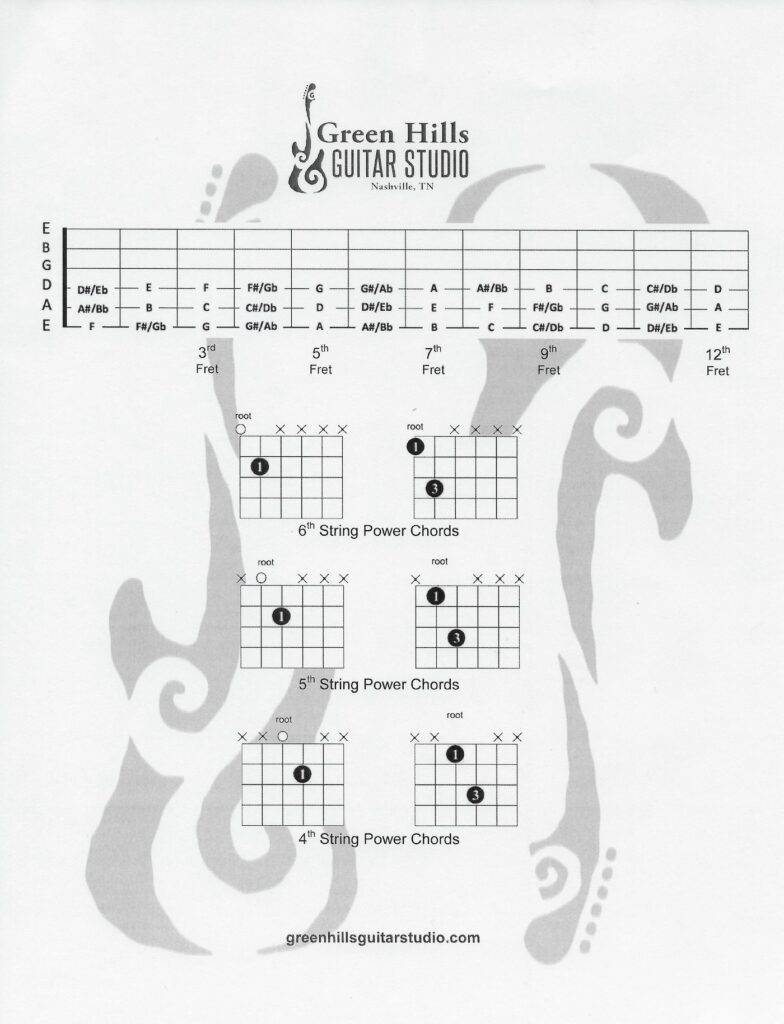
6th String Power Chord Exercise
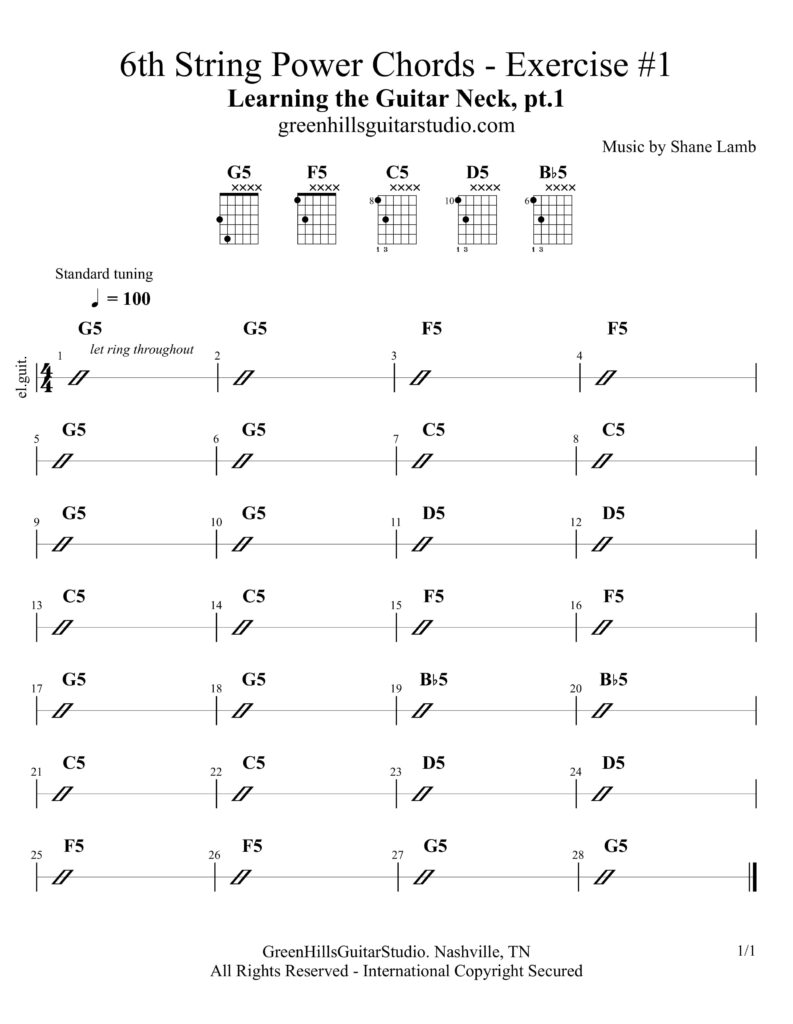
5th String Power Chords Exercise
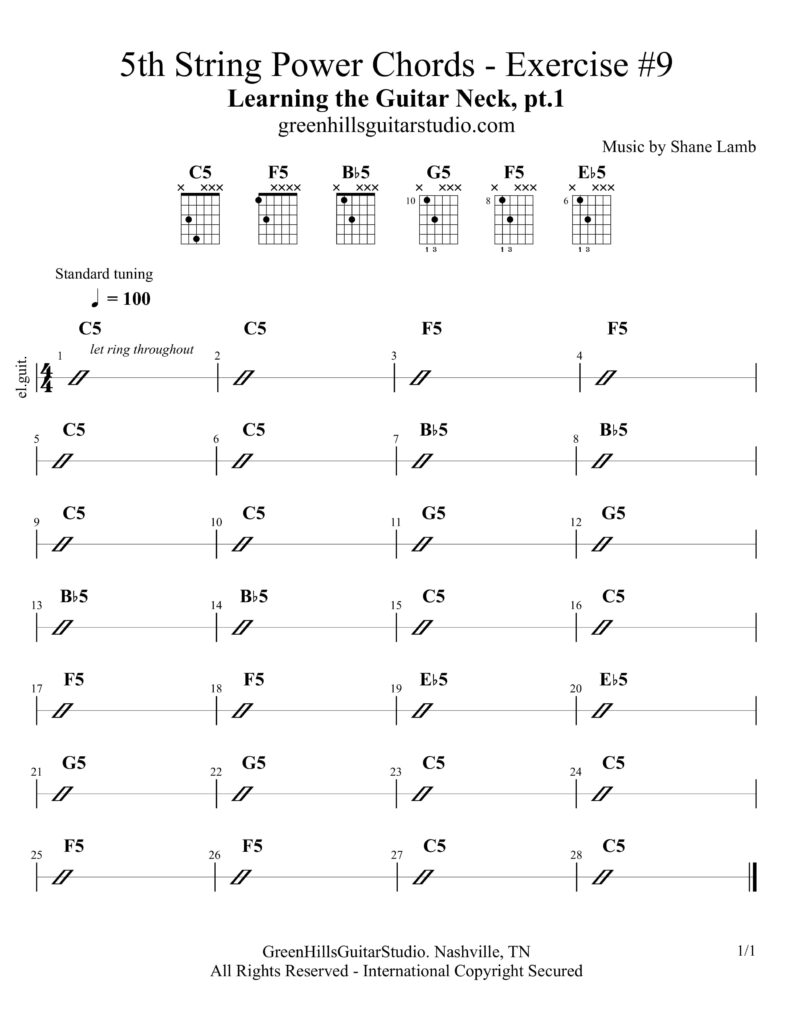
Counting & Palm Muting Power Chords Exercise
